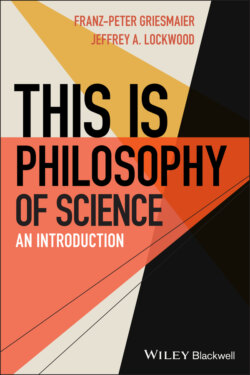Читать книгу This is Philosophy of Science - Franz-Peter Griesmaier - Страница 10
1.1 Epistemic Reasons
ОглавлениеTypically, when we wonder whether we should accept some claim, such as a scientific hypothesis, or not, we look for reasons for doing so. Another way of putting this is that we don’t believe something without having reasons. For example, if someone asks you to accept that there are intelligent, extraterrestrial life forms, you’re likely to ask for reasons before you adopt this belief. And if the other person just hems and haws, you’re not going to believe in extraterrestrials. On the other hand, if you are presented with the cosmic background radiation as evidence for the occurrence of the so-called Big Bang, you have some reason for believing that the universe emerged through this sort of process. (Notice that when we use the term “belief,” we do not mean to talk about religious faith.)
Of course, not any old reason is a good reason. If I believe something because I would like it if it were true, or because I am better off believing it, the belief might well turn out to be false – and in the overwhelming number of cases, it will be. Wishful thinking rarely leads to true beliefs. Thus, we need another kind of reason for believing something if we want to find out the truth about the world.
Reasons of the desired kind are called epistemic reasons. They are the sort of reasons that allow us to accept a belief only if there is good evidence for its truth, or only if the belief doesn’t contradict other, already well-established beliefs derived from good evidence. Of course, it is very contentious what makes for a good epistemic reason. The debate over which (types of) epistemic reasons are to be preferred over others constitutes part of what’s called epistemology, or the study of knowledge. Epistemic reasons are usually divided into two kinds: those which guarantee, in a sense to be specified momentarily, the truth of their target beliefs, and those that merely make the truth more probable. We start with the former.
